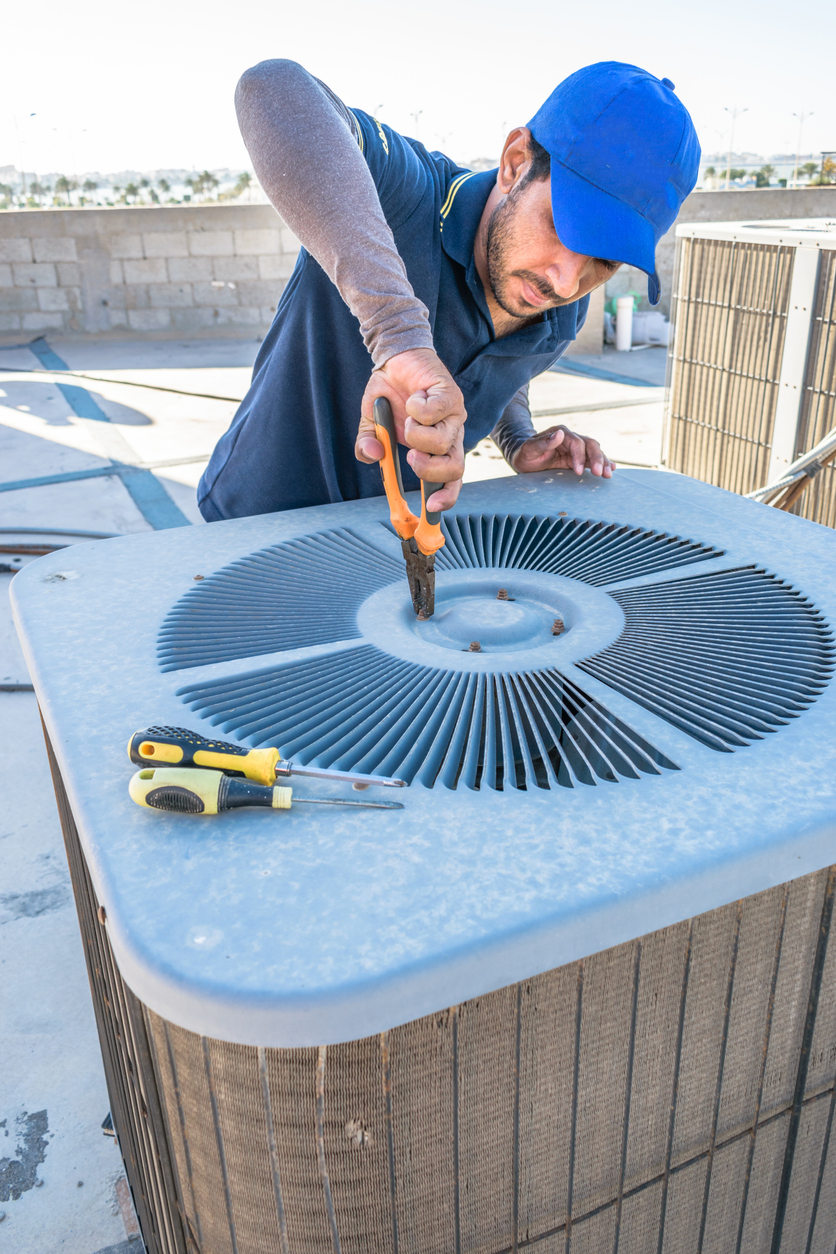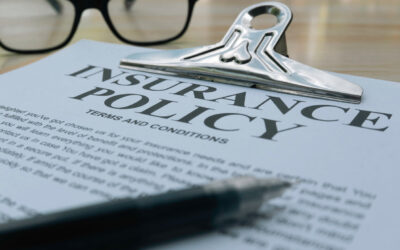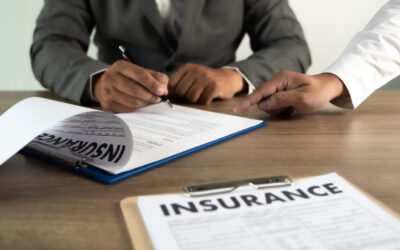Air-Conditioning/ Heating Contractors
AC/Heat Program
For air-conditioning and heating contractors, having specialized insurance is not just a necessity, it’s a smart business decision. In a field where precision and safety are paramount, insurance from Koch Insurance Group offers the peace of mind that comes from knowing you’re protected against a variety of risks. Whether it’s an unexpected equipment malfunction, property damage during an installation, or a client dispute over services rendered, our tailored insurance program covers these unique challenges.
Our expertise in your industry means we understand the intricacies of your work. This allows us to provide coverage that goes beyond general liability, addressing the specific risks associated with HVAC services. By choosing our specialized program, you ensure that not only are your tools and equipment covered, but also your reputation and livelihood. In an ever-evolving industry, having robust insurance coverage isn’t just about managing risks—it’s about securing the confidence and trust of your clients and paving the way for your business to thrive and grow.

Property Exposures
Property exposures at the contractor’s own location are generally limited to an office and storage for supplies, equipment, and vehicles. The fire exposure is
Read More...
generally light unless there are repair operations involving welding or brazing on the premises. If the contractor constructs piping on premises, the potential for fire or explosion increases due to sparks and flames produced by the welding process. Tanks of gases must be stored and handled properly. There should be basic controls such as chained storage of the tanks in a cool area and the separation
of welding operations away from combustibles, either in a separate room or with flash/welding curtains. Many air-conditioning contractors keep products or parts on premises, increasing the exposure to fire, smoke, water damage, breakage, theft and vandalism. Parts that include copper or brass can be targeted by thieves. Appropriate security controls should be taken including alarms, lighting, and physical barriers prohibiting access after-hours.
Inland Marine Exposures
Inland marine exposures include accounts receivable if the contractor offers credit to customers, contractors’ equipment and tools, including ladders and
Read More...
scaffolding, goods in transit, installation floater, and valuable papers and records for customers’ and suppliers’ information. There may be computers for tracking inventory, goods in transit, or installation exposures, Backup copies of all data should be stored off premises. Contractors’ machinery, tools, or building materials left at job sites are exposed to loss by theft, vandalism, damage from wind and weather, and damage by employees of other contractors. Contractors may lease, rent or borrow equipment, or may lease out, rent or loan their owned equipment to others, which poses additional risk as the operator may be unfamiliar with operation of the borrowed item. Since an accident may trigger both the equipment and installation coverages, as well as possible third-party liability, many contractors prefer to hire a crane or helicopter with a licensed operator to lift air-conditioning units to roof tops for installation or retrofit. The lease contract should specify responsibilities for providing insurance. Units which are dropped into place by helicopters could be damaged from drops and falls. Goods in transit consists of tools and equipment as well as products purchased by the customer for installation at the job site. Air-conditioning units can be of high value and susceptible to damage in transit, requiring expertise in loading to prevent load shift or overturn. There is an installation floater exposure when the units to be installed are delivered to the site in advance of the installation.
Crime Exposure
Crime exposure is primarily from employee dishonesty, including theft of customers’ goods by the contractor’s employee. Background checks, including criminal history,
Read More...
should be performed on all employees providing services to customers or handling money. There must be a separation of duties between persons handling deposits and disbursements and reconciling bank statements. If customers pay the plumber at the job site, receipts should be provided.
There may be some copper components on premises that could present a theft exposure
because copper is valuable when sold at a scrap metal yard. Parts and even entire units are
targeted and sold as scrap metal. Precautions should be taken when units are delivered to
new construction sites. While in transit the vehicle should be attended at all times.
Premises liability exposures
Premises liability exposures at the contractor’s office are generally limited due to a lack of public access. If there are retail sales, the exposure increases as
Read More...
customers may slip, trip, or fall. Outdoor storage may present vandalism and attractive nuisance hazards. Off-site exposures are extensive. The area of operation should be restricted by barriers and proper signage to protect the public from slips and falls over tools, power cords, air conditioning
systems, and scrap. During installation, electrical voltage must be turned off at the job site in order to reduce the risk of electrical burns or electrocution to others entering the area and turned back on after work stops. Disruption of electrical service to other homes or businesses in the vicinity should be minimized. Installing air conditioning can be invasive and require work throughout a home or business, resulting in a high potential for property damage. Welding presents potential for burns or setting the property of others on fire if not conducted safely. If there is work at heights, falling tools or supplies may cause bodily injury or property damage if dropped from ladders, scaffolding, cranes, or helicopters. The use of subcontractors as well as
any contractual liability exposures should be examined.
Personal injury exposures include assault and battery and invasion of privacy. Background
checks should be conducted for any employee who will have regular contact with customers.
Completed Operations Liability Exposures
Completed operations liability exposures can be severe due to improper wiring or grounding. When an air-conditioner malfunctions, it may be difficult to determine
Read More...
the cause since it may be due to faulty system design, faulty manufacture, or faulty installation. Significant completed operations exposures may be present in system installations at medical facilities and locations requiring refrigeration of goods. Quality control, including work order documentation, and employee training, background, and experience is important.
Environmental Liability Exposures
Environmental liability exposures can be high if the contractor is responsible for the disposal of old air-conditioning equipment that contain PCB’s. Spillage and leaking of pollutants
Read More...
into the air, ground, or water can result in high cleanup costs and fines. Disposal procedures must adhere to all EPA and other regulatory standards. Proper written procedures and documentation of both the transportation and disposal process are important.
Automobile Exposures
Automobile exposures are generally limited to transporting workers, equipment and supplies
to and from job sites. All drivers must have valid licenses for the vehicles
Read More...
being driven. MVRs must be run on a regular basis. Random drug and alcohol testing should be conducted.
Vehicles must be well maintained with records kept in a central location. Vehicles may have
special modifications or built-in equipment such as lifts and hoists. Large air conditioners may be awkward and require special handling and tie-down procedures.
Premises Liability Exposures
Premises liability exposures at the contractor’s office are generally limited due to lack of public access. If there are retail sales, the exposure increases as customers may slip, trip,
Read More...
or fall. Outdoor storage may present vandalism and attractive nuisance hazards. Off-site
exposures are extensive. The area of operation should be restricted by barriers and proper
signage to protect the public from slips and falls over tools, power cords, air conditioning
systems, and scrap. During installation, electrical voltage must be turned off at the job site in order to reduce the risk of electrical burns or electrocution to others entering the area and turned back on after work stops. Disruption of electrical service to other homes or businesses in the vicinity should be minimized. Installing air conditioning can be invasive and require work throughout a home or business, resulting in a high potential for property damage. Welding presents potential for burns or setting the property of others on fire if not conducted safely. If there is work at heights, falling tools or supplies may cause bodily injury or property damage if dropped from ladders, scaffolding, cranes, or helicopters. The use of subcontractors as well as
any contractual liability exposures should be examined.
Personal injury exposures include assault and battery and invasion of privacy. Background
checks should be conducted for any employee who will have regular contact with customers.
Articles
Why Business Owners Should Prioritize Workers’ Compensation Insurance
A workplace injury can happen at any time, and when it does, the financial and legal consequences can be overwhelming. Employees are the foundation of any successful business, and ensuring their safety should be a top priority. Workers’ compensation for business...
Protecting Your Construction Business with the Right Insurance Coverage
Running a construction business comes with unique risks, from job site accidents to equipment damage and legal disputes. Unexpected setbacks can cause significant financial strain, delaying projects and impacting business operations. Securing comprehensive contractors...
How Liability Insurance Protects Your Contracting Business from Costly Risks
Running a contracting business comes with a unique set of challenges. Whether managing construction projects, working with heavy equipment, or overseeing multiple employees, unexpected incidents can create financial strain. A single accident, damaged property, or...
Don't wait before it's too late by calling our insurance agency today for business insurance. We're honored to provide our brand of outstanding service to large and small businesses throughout Texas.
Address
2219 Sawdust Road, Suite 501
Spring, TX 77380
Phone
(281) 751-6580



